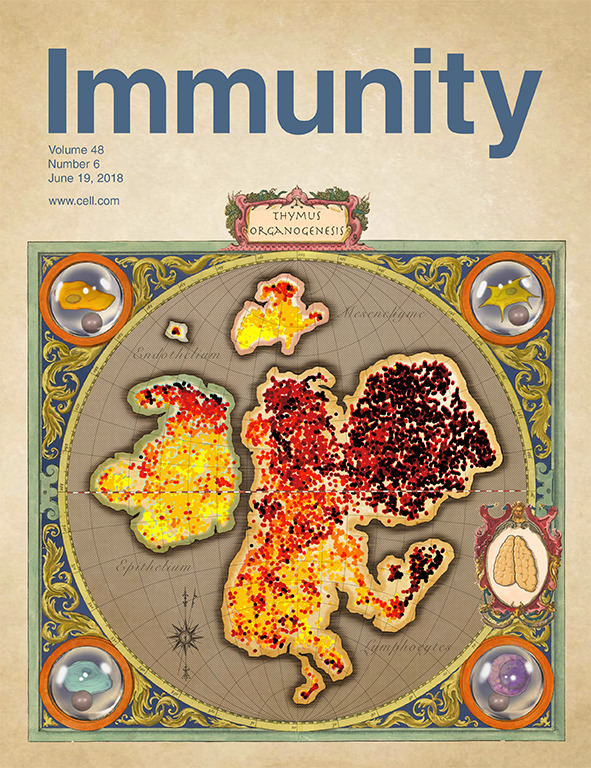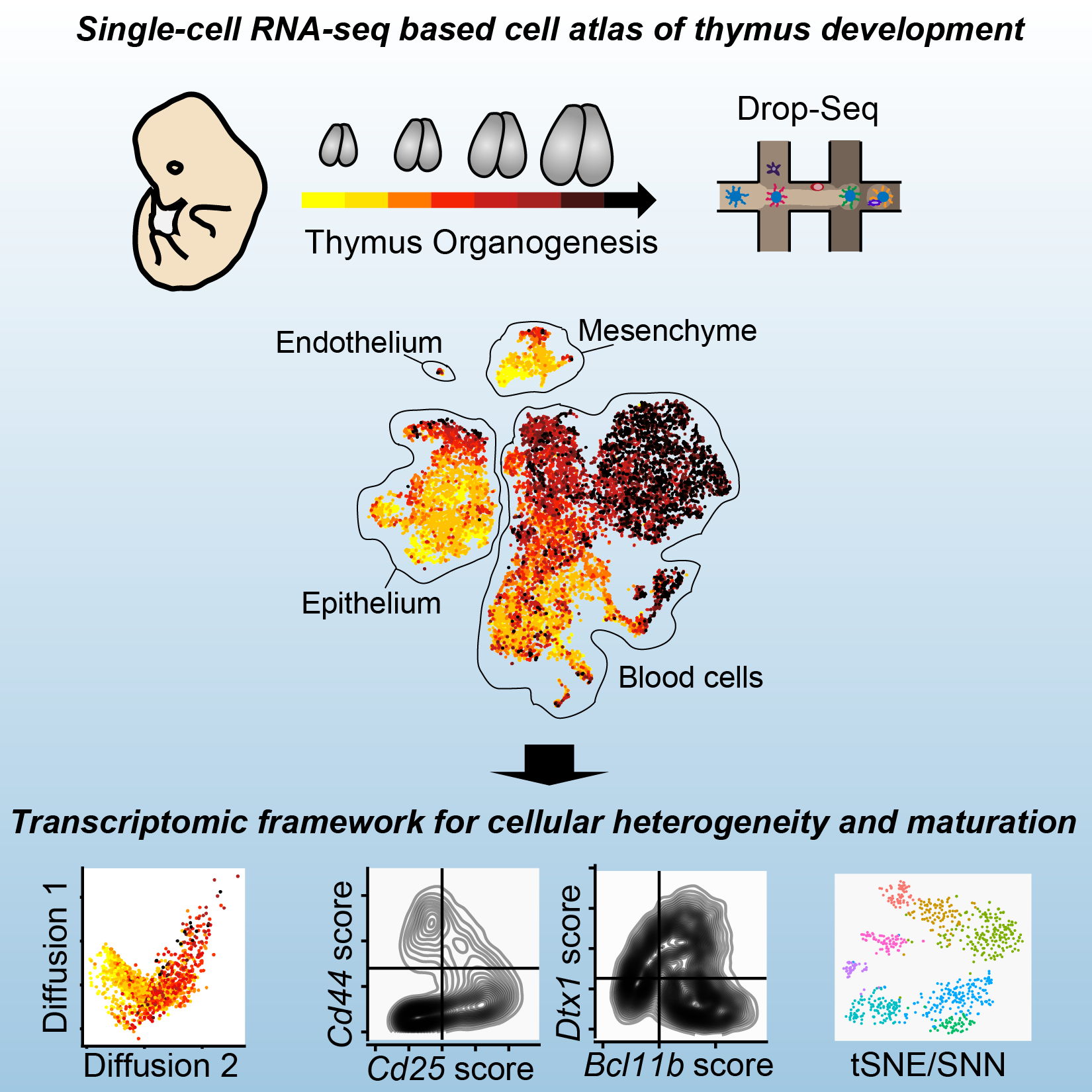The Maehr Lab's Thymus Development Study Featured as the Cover Story in Immunity
"A Single-Cell Transcriptomic Atlas of Thymus Organogenesis Resolves Cell Types and Developmental Maturation"
 Thymus development research from the UMass Diabetes Center of Excellence laboratory of René Maehr, PhD, was featured with the cover story in the June 2018 issue of Immunity. A Single-Cell Transcriptomic Atlas of Thymus Organogenesis Resolves Cell Types and Developmental Maturation highlights their cutting-edge studies and results.
Thymus development research from the UMass Diabetes Center of Excellence laboratory of René Maehr, PhD, was featured with the cover story in the June 2018 issue of Immunity. A Single-Cell Transcriptomic Atlas of Thymus Organogenesis Resolves Cell Types and Developmental Maturation highlights their cutting-edge studies and results.
The thymus is responsible for the education and maturation of T cells, and thymus dysfunction or improper development can lead to immune disorders. Molecular details of thymus formation and maturation have been largely elusive. The Maehr lab shares a droplet-based single-cell RNA sequencing survey of mouse thymus organogenesis, covering 8 days of development from initial thymus formation to birth. Within this survey, major cell types of the thymus have been captured, including lymphocytes and epithelial, mesenchymal, and endothelial cells. The study provides a molecular framework of thymus organogenesis and provides insights into the maturation and heterogeneity of cell types involved.
Image credit: Patrick Lane, ScEYEnce Studios
The cover illustration depicts major cellular subtypes as captured by tSNE analysis as “landmasses” within an atlas and highlights this study as a resource to help navigate the waters of thymus organogenesis.
Research Summary
Thymus development is critical to the adaptive immune system, yet a comprehensive transcriptional framework capturing thymus organogenesis at single-cell resolution is still needed. This cutting-edge research in the Maehr lab provides a single-cell transcriptional framework for biological discovery and molecular analysis of thymus organogenesis. Single-cell RNA sequencing (RNA-seq) was applied to capture 8 days of thymus development, perturbations of T cell receptor rearrangement, and in vitro organ cultures, producing profiles of 24,279 cells. They resolved transcriptional heterogeneity of developing lymphocytes, and genetic perturbation confirmed T cell identity of conventional and non-conventional lymphocytes. The research characterized maturation dynamics of thymic epithelial cells in vivo, classified cell maturation state in a thymic organ culture, and revealed the intrinsic capacity of thymic epithelium to preserve transcriptional regularity despite exposure to exogenous retinoic acid. Finally, by integrating the cell atlas with human genome-wide association study (GWAS) data and autoimmune-disease-related genes, they implicated embryonic thymus-resident cells as possible participants in autoimmune disease etiologies. This resource provides a single-cell transcriptional framework for biological discovery and molecular analysis of thymus organogenesis.
Highlights
• Single-cell RNA-seq reveals thymic cell types and developmental trajectories
• Integration with GWASs links thymus development to autoimmune disorder etiologies
• Machine learning measures organ culture maturation of lymphocytes and epithelium

The full article can be found here.
